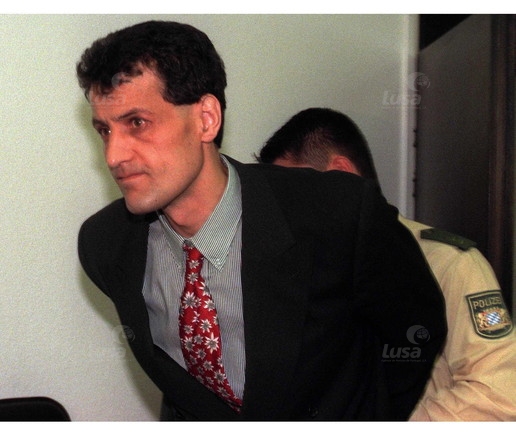This guy wasn't fucking around. Played the accordion by day and committed genocide at night. You could tell just by that face that he did his part in removing Muslims from Serbia

 Indicted for participation in genocide, the accused was sentenced to 5 years' imprisonment for complicity in 14 cases of murder and 1 case of attempted murder.
Indicted for participation in genocide, the accused was sentenced to 5 years' imprisonment for complicity in 14 cases of murder and 1 case of attempted murder.
The Court could not establish with sufficient certainty the existence of the subjective element required for the act of genocide (that is, the intent to destroy, in whole or in part, the group in question).
As long as it could not be ruled out that Djajic considered the executions as a means – however illegal and reprehensible – to discourage Muslims from carrying out further attacks on Serbian military units, it had to be assumed in his favour that he did not understand the intention behind this action, which was the extermination of the Muslims.
The Court based its competence to judge a non-national for acts committed abroad on Art. 6, No. 9, and Art. 7, subsection 2, No. 2, of the German Penal Code. Art. 6, No. 9, extends the jurisdiction of German courts to acts committed abroad by non-nationals if this is provided for in an international treaty binding upon Germany. At this stage, the Court referred to the Fourth Geneva Convention (protection of civilians) and its provisions establishing the grave breaches regime. The Court considered the conflict still to be an international one in June 1992 (with a reference to GCIV Art. 2 and a comment on the question of the termination of an international armed conflict) and qualified the victims as "protected persons" in the sense of GCIV, Art. 4. The jurisdiction of the Court could also be established by application of the principle of vicarious administration of justice (Art. 7, subsection 2, No. 2).
The question as to whether there was a sufficient link with Germany was then examined to ensure that the basic principle of non-intervention would not be infringed. This link could be established as the accused was domiciled in Germany and as this State was not acting in its own interests, but was in fact representing the whole community of States.
The Court found that the accused had not received an express order to act as he did. That being the case, it was not possible to rely on Art. 5 (1) of the Military Penal Law (WStG) (acts committed under order) to relieve the accused of liability.
However, the Court accepted the fact that the accused may have perceived himself as acting under duress, a fact which was applied in mitigation of penalty.
This judgement is under appeal.